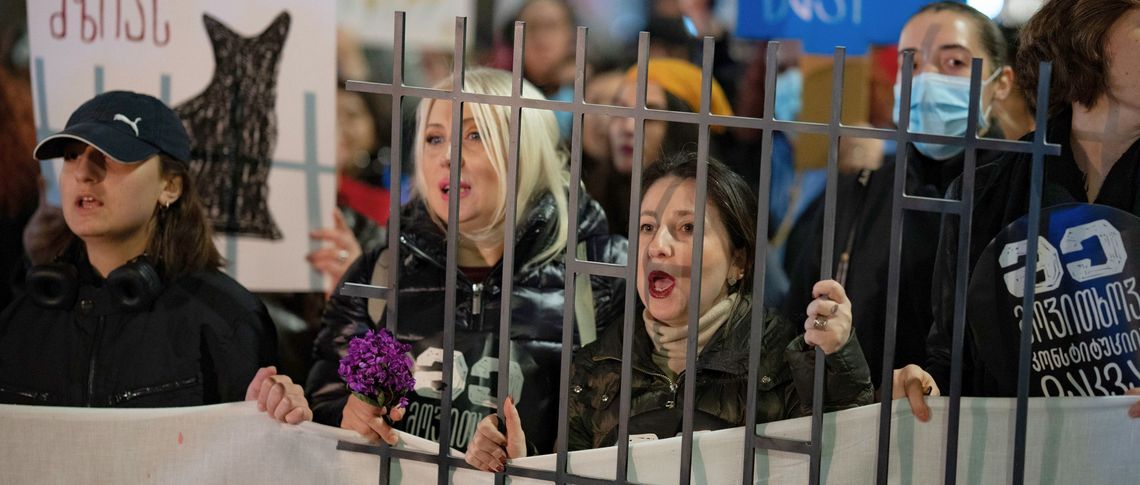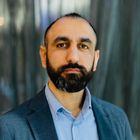Today, on 29 September 2025, the Parliamentary Assembly of the Council of Europe (PACE) will announce the winner of its annual Václav Havel Human Rights Prize. Among the three shortlisted nominees, two – Mzia Amaghlobeli in Georgia and Ulvi Hasanli in Azerbaijan – are currently imprisoned. It is a stark reminder of the risks human rights defenders face in their work to protect and promote the universality of human rights — even in Council of Europe (CoE) member states.
In May 2023, heads of State and Government of CoE member states met in Reykjavik for only the fourth time in the organisation’s 75-year history. Leaders sought to use the opportunity to reaffirm the importance of human rights, democracy and the rule of law in the face of democratic backsliding and Russia’s war against Ukraine. The summit’s declaration, signed by all member states, highlighted the vital role of civil society in promoting human rights and democracy, recommitted states to the European Convention on Human Rights and encouraged full democratic participation.
As PACE members and Council of Europe leaders gather in Strasbourg to celebrate this year’s human rights award, they must re-double their efforts to win the release of political prisoners if they are to advance the lofty goals they set for themselves in Reykjavik.
A growing human rights crisis
Named after the Czech writer, dissident and president who became a global symbol of resistance to totalitarianism, the Václav Havel Human Rights Prize has to date honoured 12 prominent civil society figures from China to Venezuela, Belarus to Iraq and Azerbaijan to Turkey. It is meant to inspire and remind the world that the courage to defend human rights, freedom and peace exists even in the darkest corners of repression. Some of those corners are in Europe.
Today, six of the 12 laureates of this very prize – Anar Mammadli in Azerbaijan, Osman Kavala and Murat Arslan in Turkey, Ales Bialiatski and Maria Kalesnikava in Belarus and Ilham Tohti in China – are behind bars. For Mammadli and Bialiatski, our long-time friends and colleagues, their current detention is the second time they have been imprisoned for their legitimate human rights work.
The growing human rights crisis across a number of Council of Europe member states is not abstract. It is real and present. As of mid-2025, Azerbaijan holds more than 375 political prisoners — more than ever before. Across the region, arrests of journalists, lawyers and civic activists have become so routine that they barely register on the public agenda. In Belarus, a country which the CoE has prioritised for outreach and to spread its values in hopes of eventual membership, the authorities have imprisoned over 1 100 human rights defenders, journalists, lawyers, activists, trade unionists and others. Human rights organisations, once engines of advancing rights and driving democratic reforms, now find themselves overwhelmed with documenting repression, updating prisoner lists, dealing with urgent safety concerns, and responding to the growing need for psychosocial support and personal protection.
The Council of Europe must match its willingness to recognise the courage of human rights defenders with efforts to stand courageously up to autocrats and dictators, even and especially those within its own membership ranks.
Against this backdrop, the Council of Europe has an obligation to stand with human rights defenders and organisations, give voice to those in detention and hold authorities accountable for human rights violations, including arbitrary and unlawful detention. The Václav Havel Prize is an important international recognition for those who stand up for human rights and against autocracy. But while recognition through such awards and solidarity matters deeply, it is not enough. The Council of Europe must match its willingness to recognise the courage of human rights defenders with efforts to stand courageously up to autocrats and dictators, even and especially those within its own membership ranks.
For PACE leadership and members, the recognition given to human rights defenders through the Václav Havel Prize must be matched with tireless, persistent and coordinated action to put pressure on the other political bodies of the Council of Europe. This includes adopting resolutions demanding the release of imprisoned laureates; organising visibility campaigns within PACE through side events, exhibitions and public initiatives; building stronger connections and networks with families of prisoners; and consistently deploying all available diplomatic tools to keep political prisoners at the forefront of European media and diplomacy.
At the same time, CoE leaders, including the Secretary General and Commissioner for Human Rights (currently Alain Berset and Michael O’Flaherty, respectively), must put the release of political prisoners at the top of the organisation’s priority list. These leaders have important public platforms that must consistently and relentlessly raise the profile of human rights defenders at risk. Leaders must work to mobilise member states to apply pressure for the release of political prisoners.
Finally, Council of Europe member states – signatories to the European Convention on Human Rights – need to recognise that the continued detention of human rights defenders poses a great risk to the long-term credibility of the institutions. Member states – on their own and through the organisation’s powerful Committee of Ministers – have to use all tools at their disposal to address the rising cases of political prisoners and crackdowns against civil society across the broader region. The Committee of Ministers needs to put enhanced enforcement pressure on member states regarding the judgments of the European Court of Human Rights on fundamental freedoms. These judgements, after all, often affect the fate of political prisoners.
About struggles, hope and giving meaning
When he was awarded the Nobel Peace Prize in December 2022, Ales Bialatski wrote from his jail cell that ‘It just so happens that people who value freedom the most are often deprived of it. . . Nothing can stop people’s thirst for freedom.’ Two years later on International Human Rights Day in December 2024, Anar Mammadli reflected from his detention in Azerbaijan: ‘The struggle for human rights is an endless, ongoing process, and it must be renewed every single day. . . as long as there are citizens who defend not only their own rights but also the rights of others, the struggle for human rights in our country is not over.’
The words of our imprisoned friends and colleagues, Bialatski and Mammadli, echo Václav Havel’s understanding of hope as an orientation of the spirit. The struggle for human rights is not about the certainty of winning but about giving meaning to the act of defending dignity every single day. Like Havel, they show that hope is not optimism that things will simply turn out well, but the conviction that the struggle itself matters — even when carried out from behind bars.
This year’s Václav Havel Prize must serve as a call to the Council of Europe to move from recognition to responsibility, from applause to accountability. Otherwise, the risk is that it becomes a monument to abandoned heroes rather than a call to action.








